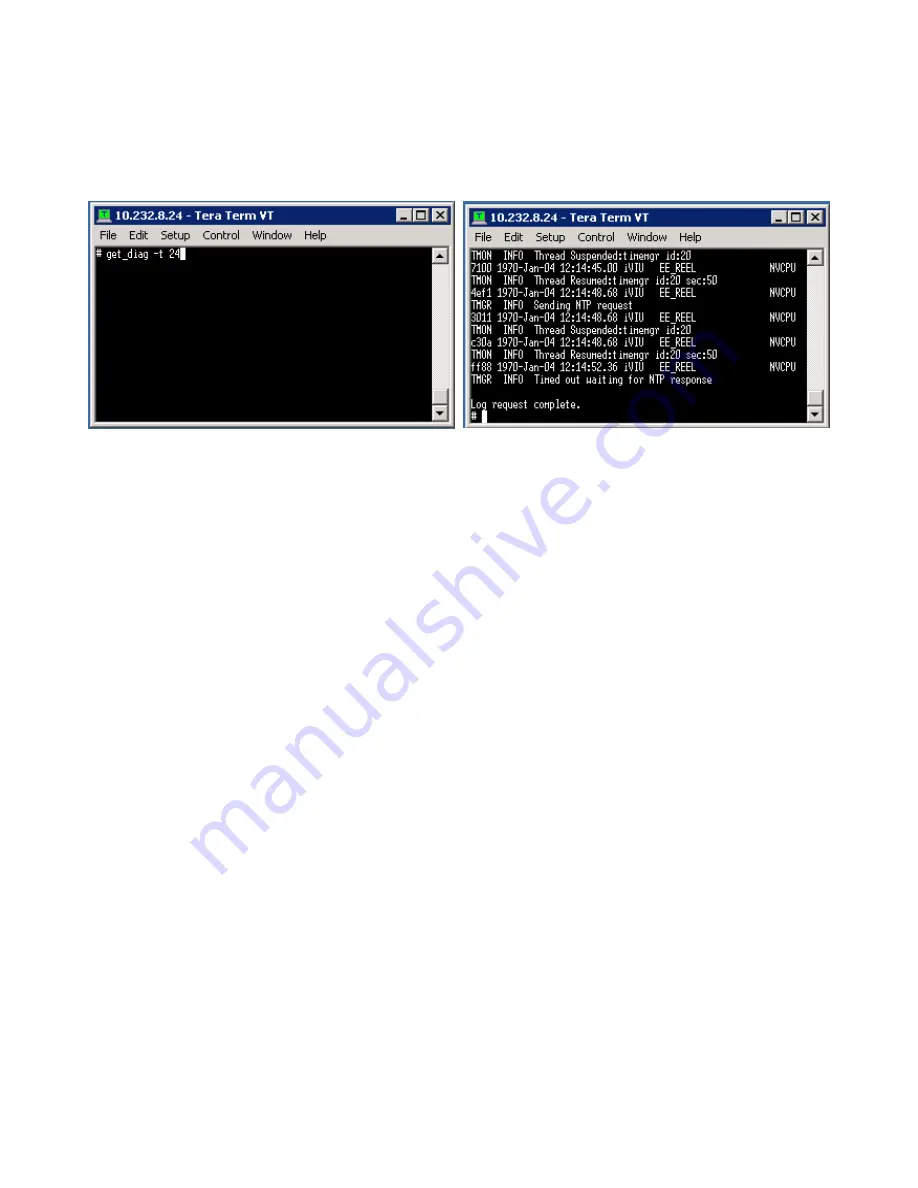
SYSTEM MANAGEMENT
_______________________________________________________________________________________________________________
A-3
SIG-00-13-12 February 2021
Version No.: B
A.3
GET_DAIG, GET_EVENTS
get_diag [-t <hours>]
Print the last <hours> worth of diagnostic log entries.
Figure 5-7 Get_Diag Example
get_diag [-s <time>] [-e <time>]
Print diagnostic log entries in the given date/time range.
get_events [-t <hours>]
Print the last <hours> worth of event log entries.
get_events [-s <time>] [-e <time>]
Print event log entries in the given date/time range.
A.3.1. Description
The get_diag command returns the contents of the system’s diagnostic log. The diagnostic log contains detailed
information about the internal workings of the PTC Console. The get_events command returns the contents of
the event log, which contains the application level view of the operation of the location. Both commands allow
the user to specify a date/time range of entries to return. If the command is used without arguments, the entire
log is returned.
-t <number_of_hours>
Prints the last
<number_of_hours>
worth of log entries. For example,
get_events –t 24
would display
the last 24 hours of events in the event log.
-s YYYY-MM-DD hh:mm:ss -e YYYY-MM-DD hh:mm:ss
Prints the entries in the given date/time range. The –s specifies the start time and the –e specifies the end time.
Times must be specified in 24 hour format. If no date and time given after –s or -t, starting time defaults to the
beginning of the log and ending time defaults to the end of the log. If you omit the time portion of the date and
time, it defaults to midnight. If you omit the date portion, it defaults to today.






















